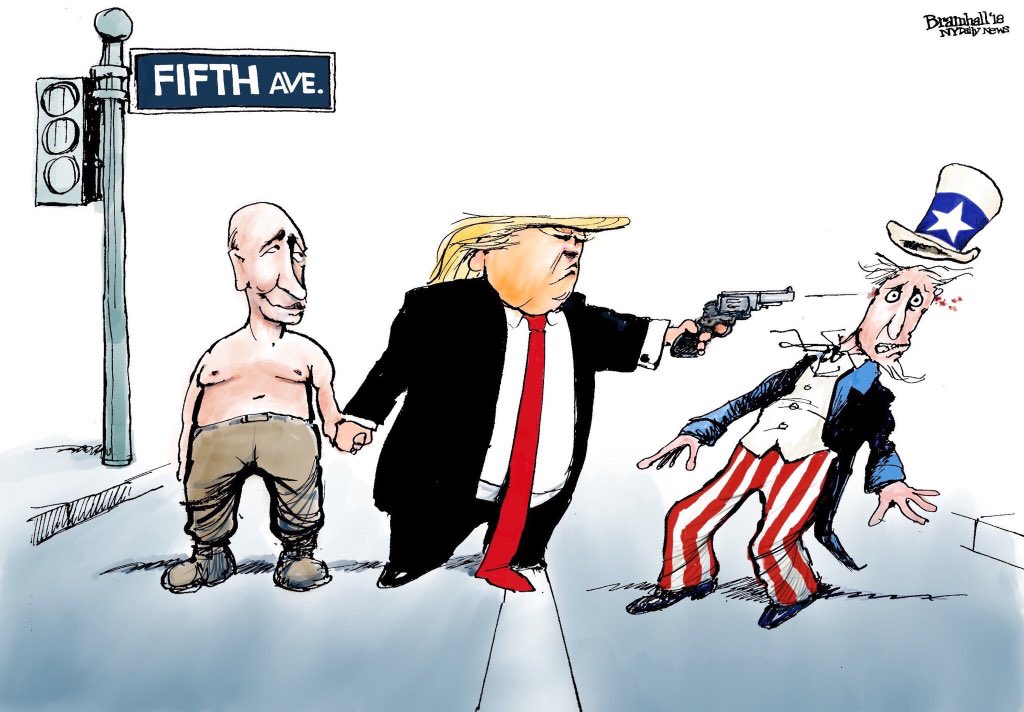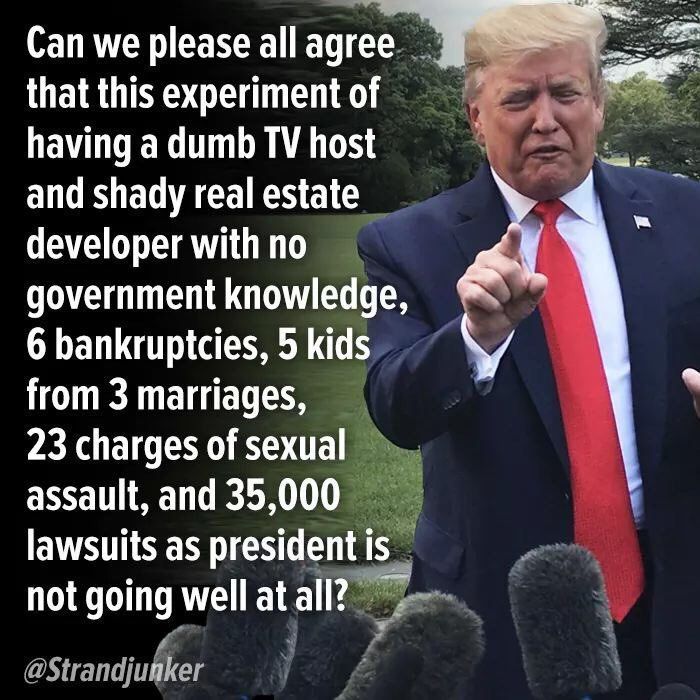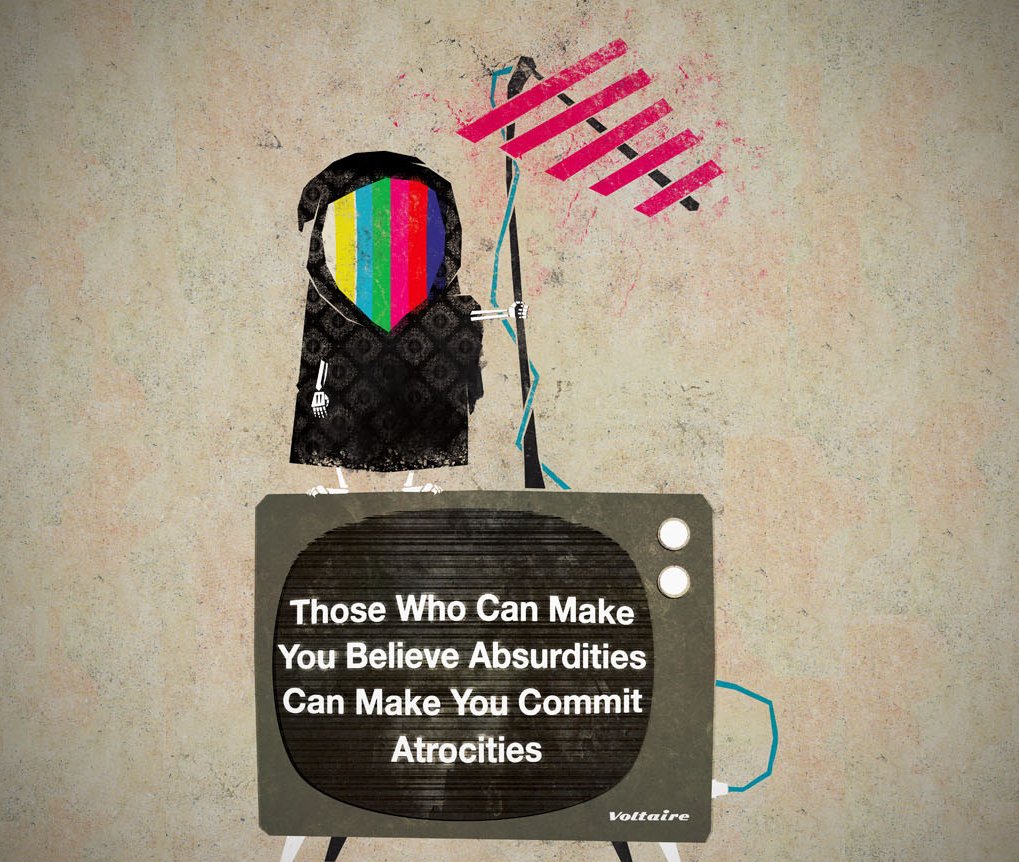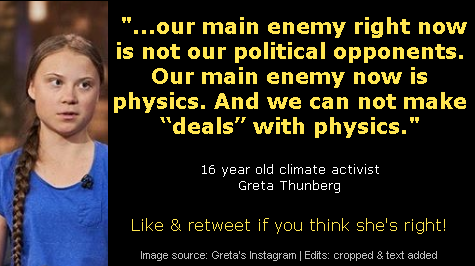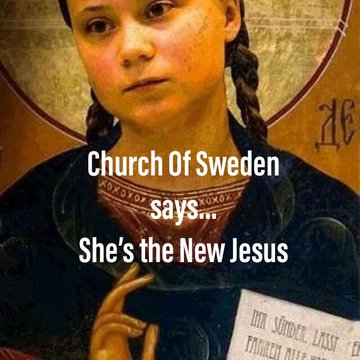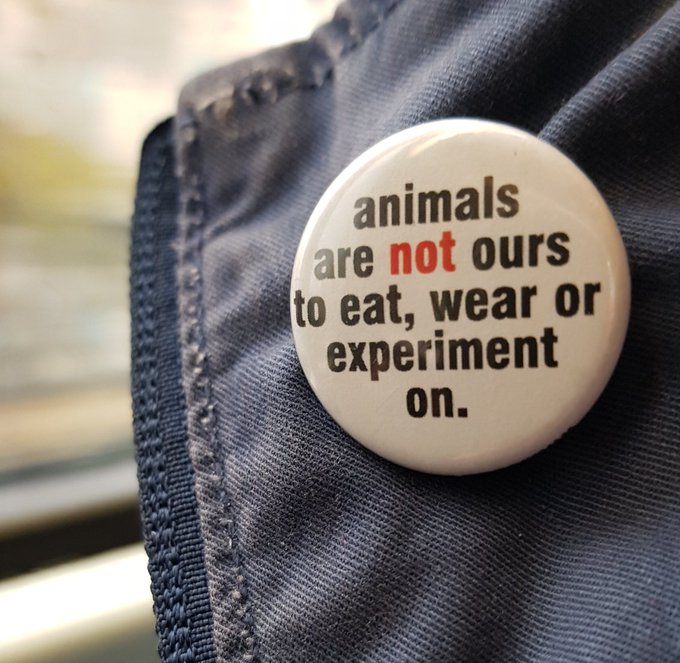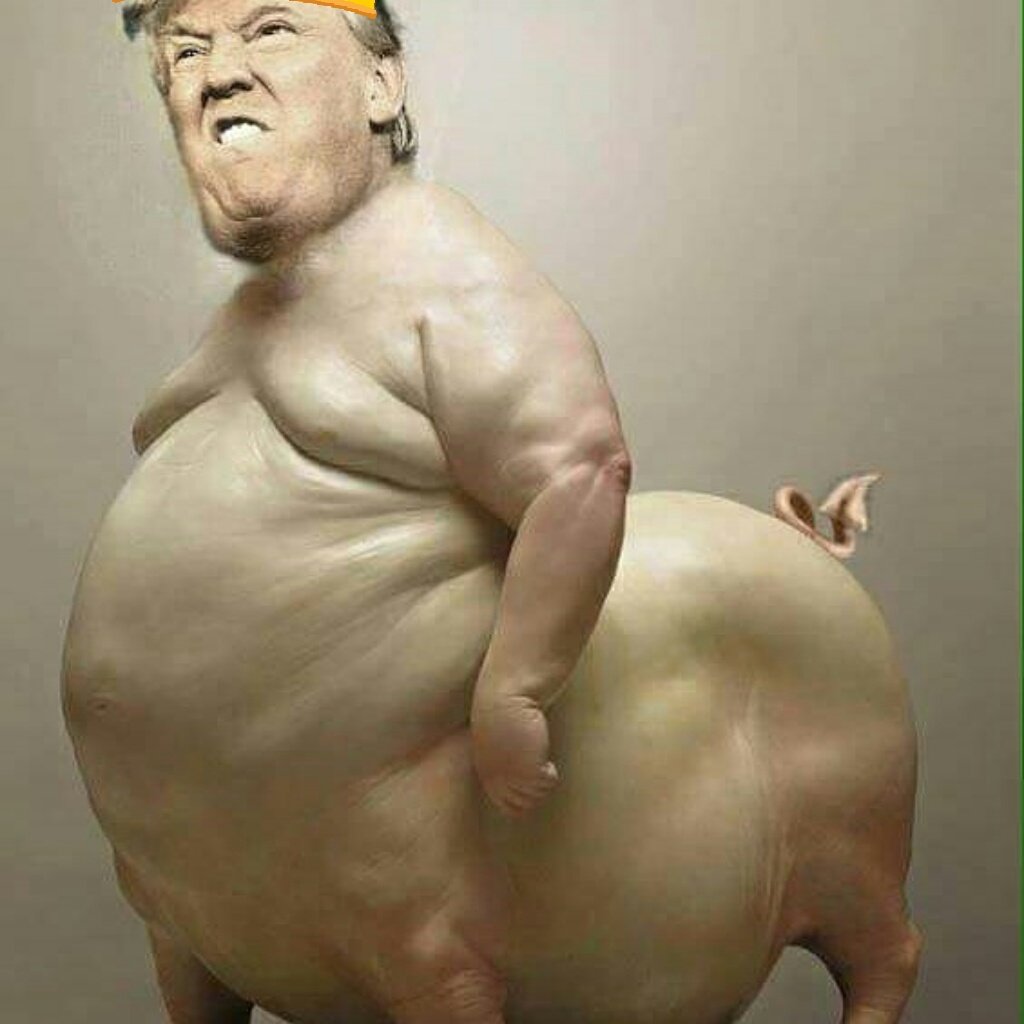The Joy of Trump
Vancouver Island Eyes on the World
Monday, October 28, 2019
Saturday, October 26, 2019
Syria, last 24 hours: Incoherent says Brett McGurk
Syria, last 24 hours: Incoherent, says Brett McGurk
Syria, last 24 hours: * US military returns in force from Iraq to guard oil fields * Thousands of refugees stream in other direction into northern Iraq * Erdogan threatens again to “do the cleansing work” in Kurdish areas US forces left to Russia and Assad Incoherent
Brett McGurk@brett_mcgurk
Payne Distinguished Lecturer
@Stanford. Foreign Affairs Analyst
@NBCNews/
@MSNBC. Former Presidential Envoy. Served under Bush, Obama, Trump. Dad.
@CarnegieMEC.
Palo Alto, CA
@Stanford. Foreign Affairs Analyst
@NBCNews/
@MSNBC. Former Presidential Envoy. Served under Bush, Obama, Trump. Dad.
@CarnegieMEC.
Palo Alto, CA
Bio
Brett McGurk is the Frank E. and Arthur W. Payne Distinguished Lecturer at the Freeman Spogli Institute and Center for Security and Cooperation at Stanford University.
McGurk’s research interests center on national security strategy, diplomacy, and decision-making in wartime. He is particularly interested in the lessons learned over the presidencies of George W. Bush, Barack Obama, and Donald Trump regarding the importance of process in informing presidential decisions and the alignment of ends and means in national security doctrine and strategy. At Stanford, he will be working on a book project incorporating these themes and teaching a graduate level seminar on presidential decision-making beginning in the fall of 2019. He is also a frequent commentator on national security events in leading publications and as an NBC News Senior Foreign Affairs Analyst.
Before coming to Stanford, McGurk served as Special Presidential Envoy for the Global Coalition to Defeat ISIS at the U.S. Department of State, helping to build and then lead the coalition of seventy-five countries and four international organizations in the global campaign against the ISIS terrorist network. McGurk was also responsible for coordinating all aspects of U.S. policy in the campaign against ISIS in Iraq, Syria, and globally.
https://cisac.fsi.stanford.edu/people/brett-mcgurk
Saturday, October 19, 2019
“An obstacle may be either a stepping stone or a stumbling block.”
“An obstacle may be either a stepping stone or a stumbling block.”
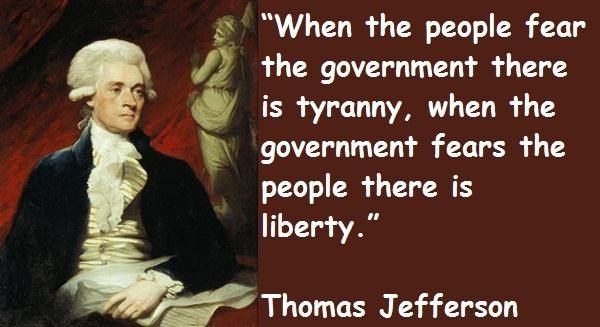

"Israeli murderers are called commandos. Arab commandos are called terrorists." ~ George Carlin
"Paradoxically, the development of the human sciences is leading to the disappearance of Man rather than to Man's apotheosis."
MICHEL FOUCAULT
From an interview with Pierre Dumayet called "Les mots et les choses"
Paul Holdengraber
@holdengraber
·Oct 14
R.I.P. HAROLD BLOOM
'There is only one thing I fear in life, my friend: one day, the black will swallow the red' ~ Mark Rothko
Harold Bloom, Critic Who Championed Western Canon, Dies at 89
Malignant narcissists cannot apologize, empathize, or show contrition. They harbor grandiose opinions of self, and cannot admit even slight imperfection, on matters large and small. They simply cannot reverse course. GOP Senators are learning they can't control the naked Emperor.

Duty To Warn
@duty2warn
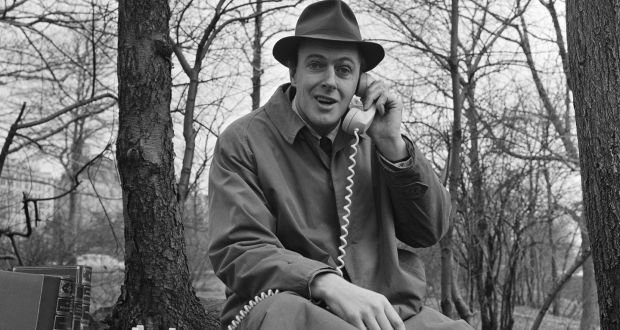
Harold Bloom, Critic Who Championed Western Canon, Dies at 89
Malignant narcissists cannot apologize, empathize, or show contrition. They harbor grandiose opinions of self, and cannot admit even slight imperfection, on matters large and small. They simply cannot reverse course. GOP Senators are learning they can't control the naked Emperor.

Duty To Warn
@duty2warn

Photo: CBS Photo Archive/Getty Image
“Don’t worry about the bits you can’t understand. Sit back and allow the words to wash around you, like music.”
Roald Dahl, 1916-1990
Friday, October 18, 2019
'Off The Rails' : Longtime Trump Lawyer Slams Giuliani On Ukraine And Cr...
'Off The Rails' : Longtime Trump Lawyer Slams Giuliani On Ukraine And Criminal Exposure
In an exclusive interview with "The Beat," Donald Trump's former personal lawyer of 15 years, Jay Goldberg, goes public with tough criticism for fellow Trump lawyer Rudy Giuliani, critiquing his work, competence and service to Trump.
Goldberg suggests Giuliani may have opened himself up to criminal liability and that he was “seduced” by the Trump “lifestyle” which drove him to lose "his sense of balance."
Goldberg also dishes that he personally advised Trump not to hire Rudy Giuliani, and says now is the time for Trump to fire Giuliani, given the impeachment probe and Giuliani's own criminal investigation.
Aired on 10/17/19. »
Friday, October 11, 2019
Democratic Dysfunction in the U.S. caused by the extraordinary level of economic power -- and political organization -- that reactionary elites have amassed
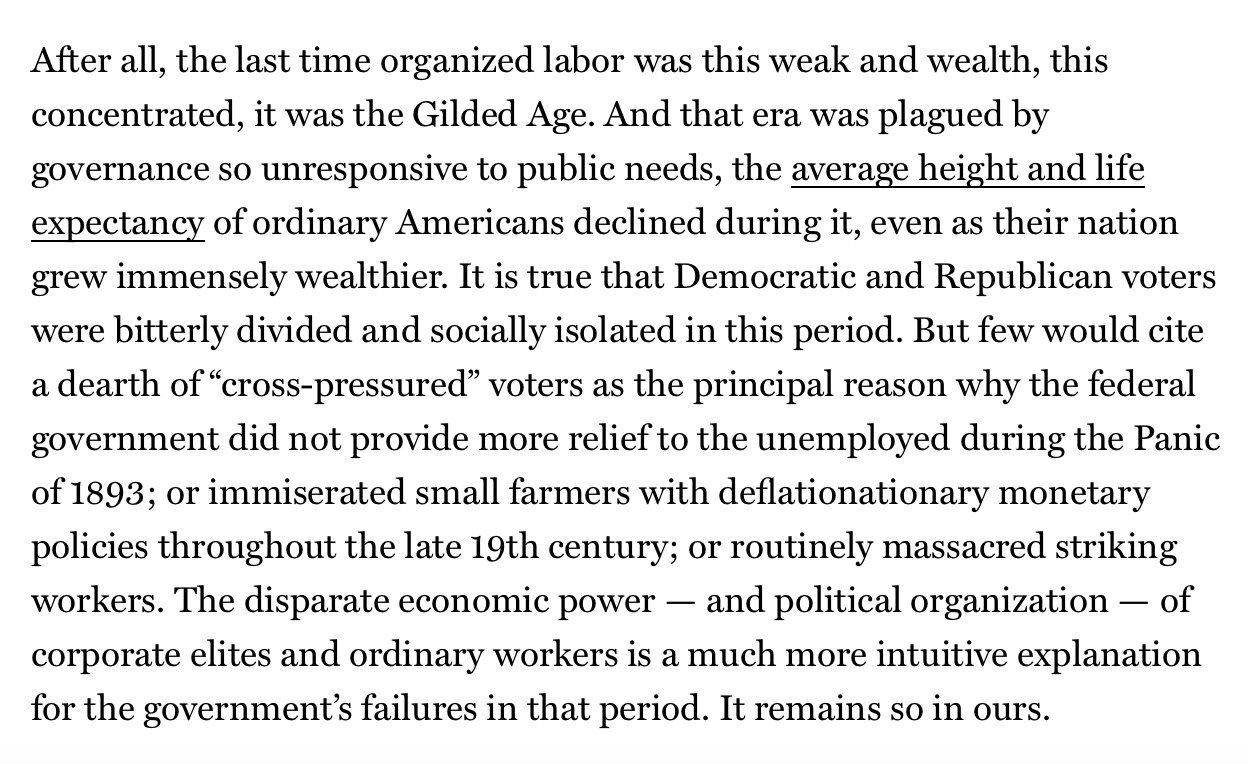
Tribalism is not the primary cause of democratic dysfunction in the U.S.
The extraordinary level of economic power -- and political organization -- that reactionary elites have amassed is.
http://nymag.com/intelligencer/2018/10/polarization-tribalism-the-conservative-movement-gop-threat-to-democracy.html
Think out loud for New York Magazine's Intelligencer.
eric.levitz@nymag.com
Eric Levitz@EricLevitz
ECOLOGY OF IDEAS
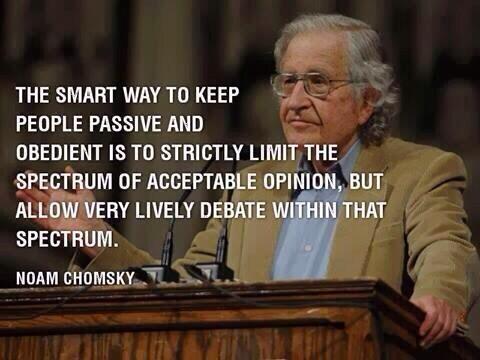
― Noam Chomsky
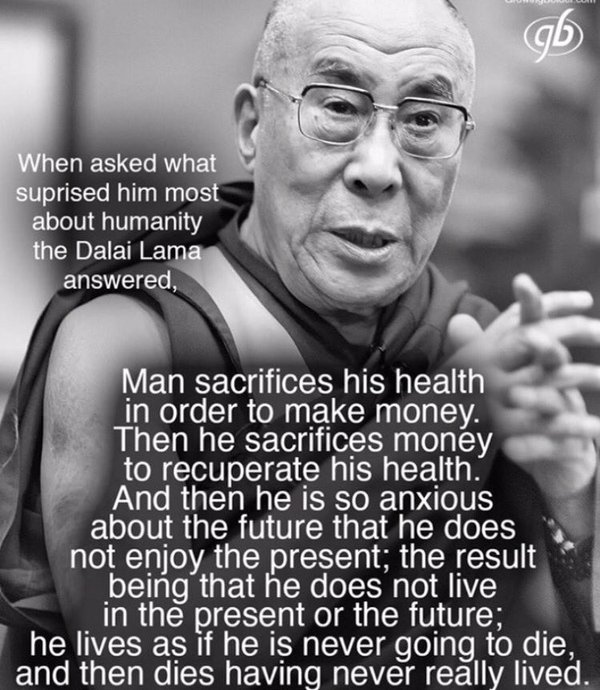
"Banks have done more injury to the religion, morality, tranquility, prosperity, and even wealth of the nation than they have done or ever will do good." - John Adams, 2nd U.S. President
"When you make peace with yourself, you make peace with the world" - Maha Ghosananda
"A child born today will grow up with no conception of privacy at all."
- Edward Snowden
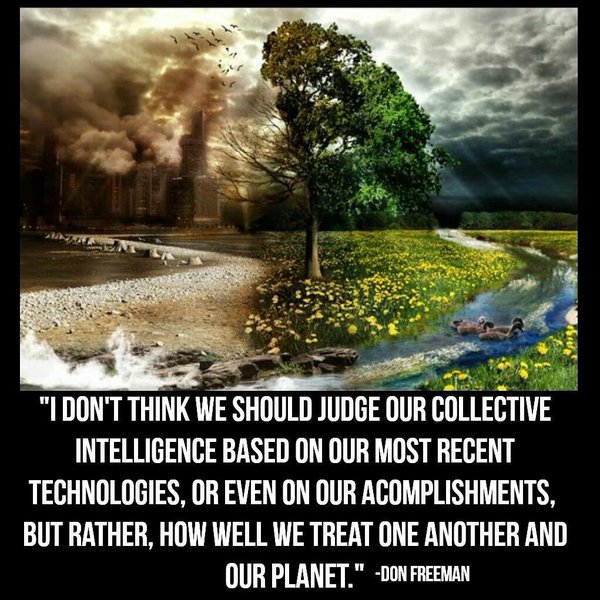
"The price of anything is the amount of life you exchange for it." - Henry David Thoreau
Friday, October 4, 2019
Thursday, October 3, 2019
Trump Meltdown
"I have some bad news, Republicans. It never gets better. Trump is a suicide bomber, and you’ve strapped yourselves to him so tightly that when he explodes, you’re going out to meet the 72 porn stars of the Trumpian afterlife with him."
The Daily Beast
@thedailybeast
Wednesday, October 2, 2019
Trump presides over his kleptocracy.
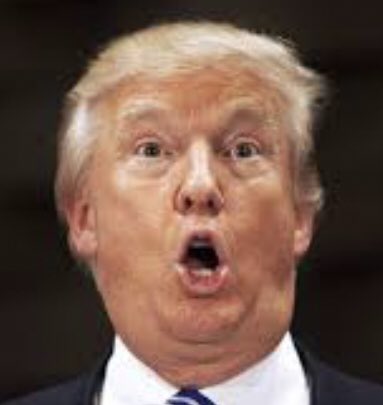
"He was a fattish but active man of paralyzing stupidity, a mass of imbecile enthusiasms—one of those completely unquestioning, devoted drudges on whom, more even than on the Thought Police, the stability of the Party depended."
- George Orwell 1984
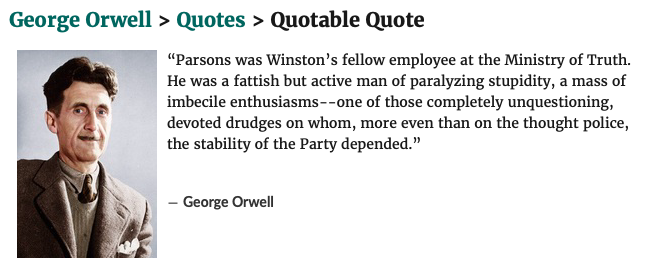

object of derision

These Photos of Trump's Meltdown With the Finnish President Are, Collectively, a Work of Art https://esquire.com/news-politics/g29343536/trump-meltdown-finland-president-photos/…

"I come into the peace of wild things who do not tax their lives with forethought of grief... For a time I rest in the grace of the world, and am free."
- Wendell Berry
Tuesday, October 1, 2019
Whistleblower complaint President Donald Trump and Ukraine President Zelensky
Whistleblower complaint linked to a phone call between President Donald Trump and Ukraine President Zelensky
By Sonam Sheth, Sinéad Baker and Lauren Frias
Sep 26, 2019
https://www.businessinsider.com/read-declassified-whistleblower-complaint-ukraine-trump-zelensky-2019-9
President Donald Trump and Ukrainian President Volodymyr Zelensky on the sidelines of the United Nations General Assembly in New York City on Wednesday. Jonathan Ernst/Reuters
The whistleblower complaint lodged by an intelligence official in August that is now at the center of an impeachment inquiry into US President Donald Trump was declassified on Thursday.
The whistleblower complaint lodged by an intelligence official in August that is now at the center of an impeachment inquiry into US President Donald Trump was declassified on Thursday.
Among the claims in it are that White House officials were "deeply disturbed" by a phone call between Trump and Ukraine's president and believed they witnessed Trump "abuse his office for personal gain."
The White House on Wednesday released a summary of the call showing that Trump asked Ukraine's president to open an investigation into former Vice President Joe Biden — one of Trump's election rivals — and help discredit the Russia probe.
The whistleblower alleged that senior White House officials tried to "lock down" all records of the call, especially the transcript.
The whistleblower said they were told by White House officials that they were "directed" by White House lawyers to remove the electronic transcript from the computer system those documents are usually stored in and to put it in a system usually used for sensitive, classified information.
Read the complaint here, or scroll down to see a summary and then the full text.
The whistleblower complaint lodged by an intelligence official in August that has since engulfed the White House in controversy and led to an impeachment inquiry into US President Donald Trump was declassified on Thursday.
The complaint makes a series of allegations, including that White House officials were "deeply disturbed" by a phone call between Trump and Ukraine's president and that they believed they saw Trump "abuse his office for personal gain" on the call.
The White House on Wednesday released a memo of the call showing that Trump asked President Volodymyr Zelensky to open an investigation into former Vice President Joe Biden — one of Trump's election rivals — and help discredit the Russia probe. The memo is not a full transcript but was made from staff notes.
Read more: Whistleblower says White House officials were 'deeply disturbed' by Trump's call with Ukraine's president, and worried they 'had witnessed the president abuse his office for personal gain'
The whistleblower also alleged that senior White House officials tried to "lock down" all records of the call, especially the transcript, and that officials told the whistleblower that they were "directed" by White House lawyers to remove the electronic transcript from the computer system those documents are usually stored in and to put it in a system typically used for classified and highly sensitive information.
House Speaker Nancy Pelosi launched a formal impeachment inquiry into Trump on Tuesday, citing the whistleblower complaint, with a majority of the House supporting the inquiry.
Read more: Trump is facing impeachment over a whistleblower complaint and a phone call with Ukraine's president. Here's what we know.
The full complaint was released to the congressional intelligence committees earlier Wednesday. It is now public.
Here are the key points in the complaint:
Trump's personal lawyer Rudy Giuliani was a "central figure" in Trump's effort.
Attorney General William Barr "appears to be involved as well."
The whistleblower wasn't a direct witness to the conduct described but heard "various facts related to" it from more than half a dozen US officials, many of whom "recounted fact patterns that were consistent with one another."
The whistleblower reported Trump's conduct because they believed it constituted "a serious or flagrant problem, abuse, or violation of law or Executive Order" and met the definition of "urgent concern" under the law.
Trump used his July 25 phone call with Zelensky to pressure Ukraine to investigate Biden and help discredit the Russia probe.
He also asked Zelensky to meet or speak with Giuliani and Barr, whom Trump referred to "multiple times in tandem."
White House officials were "deeply disturbed" by the phone call and told the whistleblower that White House lawyers were already discussing how to handle it because they believed they'd just witnessed Trump "abuse his office for personal gain."
A State Department official also listened in on the call.
Senior White House officials tried to "lock down" all records of the phone call, especially the transcript.
White House officials told the whistleblower they were "directed" by White House lawyers to remove the electronic transcript from the computer system those documents are usually stored in.
The transcript was instead put in a separate electronic system typically used to store classified, sensitive information.
The day after the call, two US officials — Kurt Volker, the special representative for Ukraine negotiations, and Gordon Sondland, the ambassador to the European Union — met with Ukrainian leaders to help them "navigate" Trump's demands.
Giuliani met with one of Zelensky's advisers, Andriy Yermak, on August 2 as a "direct follow-up" of Trump's call with Zelensky about the "cases" they had discussed.
Giuliani also reached out to several other Zelensky advisers, but it's unclear whether they ultimately met or what was discussed. But multiple US officials told the whistleblower that at least two of Zelensky's aides planned to travel to Washington, DC, in mid-August.
The whistleblower pointed to articles published in March detailing how several Ukrainian officials, including Yuriy Lutsenko, the prosecutor general at the time, alleged that other Ukrainian officials had meddled in the 2016 US election with the Democratic National Committee.
Lutsenko alleged that the US Embassy in Kyiv, which had criticized his office, had obstructed Ukrainian corruption cases and "blocked Ukrainian prosecutors from traveling to the US expressly to prevent them from delivering their 'evidence' about the 2016 election."
And he alleged that in 2016, Biden pressured Ukrainian President Petro Poroshenko to fire his prosecutor general, Viktor Shokin, to squash a criminal investigation into Burisma Holdings, a Ukrainian gas-extraction company whose board Biden's son Hunter sat on.
The whistleblower also highlighted how Lutsenko said publicly that he wanted to discuss the matter with Barr.
Giuliani met with Lutsenko at least twice: once in late January, and again in mid-February. Giuliani also spoke to Shokin in late 2018.
Trump called Lutsenko's claims "big" and "incredible" in an April 25 interview on Fox News and said Barr "would want to see this."
US officials told the whistleblower that the US ambassador to Ukraine was recalled over pressure about Lutsenko's allegations about election meddling.
US officials also told the whistleblower that they were deeply concerned by Giuliani dealing with Ukraine, viewing it as a circumvention of normal national security processes.
They said that State Department officials spoke with Giuliani to try to "contain the damage" to national security.
Multiple US officials also told the whistleblower that Ukraine was led to believe that a call or meeting between the two presidents "would depend on whether Zelenskyy showed willingness to 'play ball' on the issues that had been publicly aired by Mr. Lutsenko and Mr. Giuliani."
White House officials told the whistleblower that it was "not the first time" during the Trump administration that a transcript of Trump's conservation was put in the online system typically used to store sensitive national-security-related things. Some thought it was "an abuse of the system."
You can look at the original document here. And here's the full text of the whistleblower complaint:
In the course of my official duties, I have received information from multiple U.S. Government officials that the President of the United States is using the power of his office to solicit interference from a foreign country in the 2020 U.S. election.
This interference includes, among other things, pressuring a foreign country to investigate one of the President's main domestic political rivals. The President's personal lawyer, Mr. Rudolph Giuliani, is a central figure in this effort. Attorney General Barr appears to be involved as well.
Over the past four months, more than half a dozen U.S. officials have informed me of various facts related to this effort. The information provided herein was relayed to me in the course of official interagency business. It is routine for U.S. officials with responsibility for a particular regional or functional portfolio to share such information with one another in order to inform policymaking and analysis.
I was not a direct witness to most of the events described.
However, I found my colleagues' accounts of these events to be credible because, in almost all cases, multiple officials recounted fact patterns that were consistent with one another.
In addition, a variety of information consistent with these private accounts has been reported publicly.
I am deeply concerned that the actions described below constitute "a serious or flagrant problem, abuse, or violation of law or Executive Order" that "does not include differences of opinions concerning public policy matters," consistent with the definition of an "urgent concern" in 50 U.S.C. §3033(k)(5)(G). I am therefore fulfilling my duty to report this information, through proper legal channels, to the relevant authorities.
I am also concerned that these actions pose risks to U.S. national security and undermine the U.S. Government's efforts to deter and counter foreign interference in U.S. elections.
To the best of my knowledge, the entirety of this statement is unclassified when separated from the classified enclosure. I have endeavored to apply the classification standards outlined in Executive Order (EO) 13526 and to separate out information that I know or have reason to believe is classified for national security purposes.1
If a classification marking is applied retroactively, I believe it is incumbent upon the classifying authority to explain why such a marking was applied, and to which specific information it pertains.
I. The 25 July Presidential phone call
Early in the morning of 25 July, the President spoke by telephone with Ukrainian President Volodymyr Zelenskyy. I do not know which side initiated the call. This was the first publicly acknowledged call between the two leaders since a brief congratulatory call after Mr. Zelenskyy won the presidency on 21 April.
Multiple White House officials with direct knowledge of the call informed me that, after an initial exchange of pleasantries, the President used the remainder of the call to advance his personal interests. Namely, he sought to pressure the Ukrainian leader to take actions to help the President's 2020 reelection bid. According to the White House officials who had direct knowledge of the call, the President pressured Mr. Zelenskyy to, inter alia:
initiate or continue an investigation2 into the activities of former Vice President Joseph Biden and his son, Hunter Biden;
assist in purportedly uncovering that allegations of Russian interference in the 2016 U.S. presidential election originated in Ukraine, with a specific request that the Ukrainian leader locate and turn over servers used by the Democratic National Committee (DNC) and examined by the U.S. cyber security firm Crowdstrike,3 which initially reported that Russian hackers had penetrated the DNC's networks in 2016; and
meet or speak with two people the President named explicitly as his personal envoys on these matters, Mr. Giuliani and Attorney General Barr, to whom the President referred multiple times in tandem.
The President also praised Ukraine's Prosecutor General, Mr. Yuriy Lutsenko, and suggested that Mr. Zelenskyy might want to keep him in his position. (Note: Starting in March 2019, Mr. Lutsenko made a series of public allegations — many of which he later walked back — about the Biden family's activities in Ukraine, Ukrainian officials' purported involvement in the 2016 U.S. election, and the activities of the U.S. Embassy in Kyiv. See Part IV for additional context.)
The White House officials who told me this information were deeply disturbed by what had transpired in the phone call.
They told me that there was already a "discussion ongoing" with White House lawyers about how to treat the call because of the likelihood, in the officials' retelling, that they had witnessed the President abuse his office for personal gain.
The Ukrainian side was the first to publicly acknowledge the phone call. On the evening of 25 July, a readout was posted on the website of the Ukrainian President that contained the following line (translation from original Russian-language readout):
"Donald Trump expressed his conviction that the new Ukrainian government will be able to quickly improve Ukraine's image and complete the investigation of corruption cases that have held back cooperation between Ukraine and the United States."
Aside from the above-mentioned "cases" purportedly dealing with the Biden family and the 2016 US election, I was told by White House officials that no other "cases" were discussed.
Based on my understanding, there were approximately a dozen White House officials who listened to the call — a mixture of policy officials and duty officers in the White House Situation Room, as is customary. The officials I spoke with told me that participation in the call had not been restricted in advance because everyone expected it would be a "routine" call with a foreign leader. I do not know whether anyone was physically present with the President during the call.
In addition to White House personnel, I was told that a State Department official, Mr. T. Ulrich Brechbuhl, also listened in on the call.
I was not the only non-White House official to receive a readout of the call. Based on my understanding, multiple State Department and Intelligence Community officials were also briefed on the contents of the call as outlined above.
II. Efforts to restrict access to records related to the call
In the days following the phone call, I learned from multiple U.S. officials that senior White House officials had intervened to "lock down" all records of the phone call, especially the official word-for-word transcript of the call that was produced — as is customary — by the White House Situation Room.
This set of actions underscored to me that White House officials understood the gravity of what had transpired in the call.
White House officials told me that they were "directed" by White House lawyers to remove the electronic transcript from the computer system in which such transcripts are typically stored for coordination, finalization, and distribution to Cabinet-level officials.
Instead, the transcript was loaded into a separate electronic system that is otherwise used to store and handle classified information of an especially sensitive nature. One White House official described this act as an abuse of this electronic system because the call did not contain anything remotely sensitive from a national security perspective.
I do not know whether similar measures were taken to restrict access to other records of the call, such as contemporaneous handwritten notes taken by those who listened in.
III. Ongoing concerns
On 26 July, a day after the call, U.S. Special Representative for Ukraine Negotiations Kurt Volker visited Kyiv and met with President Zelenskyy and a variety of Ukrainian political figures. Ambassador Volker was accompanied in his meetings by U.S. Ambassador to the European Union Gordon Sondland. Based on multiple readouts of these meetings recounted to me by various U.S. officials, Ambassadors Volker and Sondland reportedly provided advice to the Ukrainian leadership about how to "navigate" the demands that the President had made of Mr. Zelenskyy.
I also learned from multiple U.S. officials that, on or about 2 August, Mr. Giuliani reportedly traveled to Madrid to meet with one of President Zelenskyy's advisers, Andriy Yermak. The U.S. officials characterized this meeting, which was not reported publicly at the time, as a "direct follow-up" to the President's call with Mr. Zelenskyy about the "cases" they had discussed.
Separately, multiple U.S. officials told me that Mr. Giuliani had reportedly privately reached out to a variety of other Zelenskyy advisers, including Chief of Staff Andriy Bohdan and Acting Chairman of the Security Service of Ukraine Ivan Bakanov.4
I do not know whether those officials met or spoke with Mr. Giuliani, but I was told separately by multiple U.S. officials that Mr. Yermak and Mr. Bakanov intended to travel to Washington in mid-August.
On 9 August, the President told reporters: "I think [President Zelenskyy] is going to make a deal with President Putin, and he will be invited to the White House. And we look forward to seeing him. He's already been invited to the White House, and he wants to come. And I think he will. He's a very reasonable guy. He wants to see peace in Ukraine, and I think he will be coming very soon, actually."
IV. Circumstances leading up to the 25 July Presidential phone call
Beginning in late March 2019, a series of articles appeared in an online publication called The Hill. In these articles, several Ukrainian officials — most notably, Prosecutor General Yuriy Lutsenko — made a series of allegations against other Ukrainian officials and current and former U.S. officials. Mr. Lutsenko and his colleagues alleged, inter alia:
that they possessed evidence that Ukrainian officials — namely, Head of the National Anticorruption Bureau of Ukraine Artem Sytnyk and Member of Parliament Serhiy Leshchenko — had "interfered" in the 2016 U.S. presidential election, allegedly in collaboration with the DNC and the U.S. Embassy in Kyiv.5
that the US. Embassy in Kyiv — specifically, U.S. Ambassador Marie Yovanovitch, who had criticized Mr. Lutsenko's organization for its poor record on fighting corruption — had allegedly obstructed Ukrainian law enforcement agencies' pursuit of corruption cases, including by providing a "do not prosecute" list, and had blocked Ukrainian prosecutors from traveling to the United States expressly to prevent them from delivering their "evidence" about the 2016 U.S. election;6 and
that former Vice President Biden had pressured former Ukrainian President Petro Poroshenko in 2016 to fire then Ukrainian Prosecutor General Viktor Shokin in order to quash a purported criminal probe into Burisma Holdings, a Ukrainian energy company on whose board the former Vice President's son, Hunter, sat.7
In several public comments,8 Mr. Lutsenko also stated that he wished to communicate directly with Attorney General Barr on these matters.9
The allegations by Mr. Lutsenko came on the eve of the first round of Ukraine's presidential election on 31 March. By that time, Mr. Lutsenko's political patron, President Poroshenko, was trailing Mr. Zelenskyy in the polls and appeared likely to be defeated. Mr. Zelenskyy had made known his desire to replace Mr. Lutsenko as Prosecutor General. On 21 April, Mr. Poroshenko lost the runoff to Mr. Zelenskyy by a landslide. See Enclosure for additional information.
It was also publicly reported that Mr. Giuliani had met on at least two occasions with Mr. Lutsenko: once in New York in late January and again in Warsaw in mid-February. In addition, it was publicly reported that Mr. Giuliani had spoken in late 2018 to former Prosecutor General Shokin, in a Skype call arranged by two associates of Mr. Giuliani.10
On 25 April in an interview with Fox News, the President called Mr. Lutsenko's claims "big" and "incredible" and stated that the Attorney General "would want to see this."
On or about 29 April, I learned from U.S. officials with direct knowledge of the situation that Ambassador Yovanovitch had been suddenly recalled to Washington by senior State Department officials for "consultations" and would most likely be removed from her position.
Around the same time, I also learned from a U.S. official that "associates" of Mr. Giuliani were trying to make contact with the incoming Zelenskyy team.11
On 6 May, the State Department announced that Ambassador Yovanovitch would be ending her assignment in Kyiv "as planned."
However, several U.S. officials told me that, in fact, her tour was curtailed because of pressure stemming from Mr. Lutsenko's allegations. Mr. Giuliani subsequently stated in an interview with a Ukrainian journalist published on 14 May that Ambassador Yovanovitch was "removed ... because she was part of the efforts against the President."
On 9 May, The New York Times reported that Mr. Giuliani planned to travel to Ukraine to press the Ukrainian government to pursue investigations that would help the President in his 2020 reelection bid.
In his multitude of public statements leading up to and in the wake of the publication of this article, Mr. Giuliani confirmed that he was focused on encouraging Ukrainian authorities to pursue investigations into alleged Ukrainian interference in the 2016 U.S. election and alleged wrongdoing by the Biden family.12
On the afternoon of 10 May, the President stated in an interview with Politico that he planned to speak with Mr. Giuliani about the trip.
A few hours later, Mr. Giuliani publicly canceled his trip, claiming that Mr. Zelenskyy was "surrounded by enemies of the [U.S.] President ... and of the United States."
On 11 May, Mr. Lutsenko met for two hours with President-elect Zelenskyy, according to a public account given several days later by Mr. Lutsenko. Mr. Lutsenko publicly stated that he had told Mr. Zelenskyy that he wished to remain as Prosecutor General.
Starting in mid-May, I heard from multiple U.S. officials that they were deeply concerned by what they viewed as Mr. Giuliani's circumvention of national security decisionmaking processes to engage with Ukrainian officials and relay messages back and forth between Kyiv and the President. These officials also told me:
that State Department officials, including Ambassadors Volker and Sondland, had spoken with Mr. Giuliani in an attempt to "contain the damage" to U.S. national security; and
that Ambassadors Volker and Sondland during this time period met with members of the new Ukrainian administration and, in addition to discussing policy matters, sought to help Ukrainian leaders understand and respond to the differing messages they were receiving from official U.S. channels on the one hand, and from Mr. Giuliani on the other.
During this same timeframe, multiple U.S. officials told me that the Ukrainian leadership was led to believe that a meeting or phone call between the President and President Zelenskyy would depend on whether Zelenskyy showed willingness to "play ball" on the issues that had been publicly aired by Mr. Lutsenko and Mr. Giuliani. (Note: This was the general understanding of the state of affairs as conveyed to me by U.S. officials from late May into early July. I do not know who delivered this message to the Ukrainian leadership, or when.) See Enclosure for additional information.
Shortly after President Zelenskyy's inauguration, it was publicly reported that Mr. Giuliani met with two other Ukrainian officials: Ukraine's Special Anticorruption Prosecutor, Mr. Nazar Kholodnytskyy, and a former Ukrainian diplomat named Andriy Telizhenko. Both Mr. Kholodnytskyy and Mr. Telizhenko are allies of Mr. Lutsenko and made similar allegations in the above-mentioned series of articles in The Hill.
On 13 June, the President told ABC's George Stephanopoulos that he would accept damaging information on his political rivals from a foreign government.
On 21 June, Mr. Giuliani tweeted: "New Pres of Ukraine still silent on investigation of Ukrainian interference in 2016 and alleged Biden bribery of Poroshenko. Time for leadership and investigate both if you want to purge how Ukraine was abused by Hillary and Clinton people."
In mid-July, I learned of a sudden change of policy with respect to U.S. assistance for Ukraine. See Enclosure for additional information.
FOOTNOTES:
1. Apart from the information in the Enclosure, it is my belief that none of the information contained herein meets the definition of "classified information" outlined in EO 13526, Part 1, Section 1.1. There is ample open-source information about the efforts I describe below, including statements by the President and Mr. Giuliani. In addition, based on my personal observations, there is discretion with respect to the classification of private comments by or instructions from the President, including his communications with foreign leaders; information that is not related to U.S. foreign policy or national security — such as the information contained in this document, when separated from the Enclosure — is generally treated as unclassified. I also believe that applying a classification marking to this information would violate EO 13526, Part 1, Section 1.7, which states: "In no case shall information be classified, continue to be maintained as classified, or fail to be declassified in order to: (1) conceal violations of law, inefficiency, or administrative error; [or] (2) prevent embarrassment to a person, organization, or agency."
2. It is unclear whether such a Ukrainian investigation exists. See Footnote #7 for additional information.
3. I do not know why the President associates these servers with Ukraine. (See, for example, his comments to Fox News on 20 July: "And Ukraine. Take a look at Ukraine. How come the FBI didn't take this server? Podesta told them to get out. He said, get out. So, how come the FBI didn't take the server from the DNC?")
4. In a report published by the Organized Crime and Corruption Reporting Project (OCCRP) on 22 July, two associates of Mr. Giuliani reportedly traveled to Kyiv in May 2019, and met with Mr. Bakanov and another close Zelenskyy adviser, Mr. Serhiy Shefir.
5. Mr. Sytnyk and Mr. Leshchenko are two of Mr. Lutsenko's main domestic rivals. Mr. Lutsenko has no legal training and has been widely criticized in Ukraine for politicizing criminal probes and using his tenure as Prosecutor General to protect corrupt Ukrainian officials. He has publicly feuded with Mr. Sytnyk, who heads Ukraine's only competent anticorruption body, and with Mr. Leshchenko, a former investigative journalist who has repeatedly criticized Mr. Lutsenko's record. In December 2018, a Ukrainian court upheld a complaint by a Member of Parliament, Mr. Boryslav Rozenblat, who alleged that Mr. Sytnyk and Mr. Leshchenko had "interfered" in the 2016 U.S. election by publicizing a document detailing corrupt payments made by former Ukrainian President Viktor Yanukovych before his ouster in 2014. Mr. Rozenblat had originally filed the motion in late 2017 after attempting to flee Ukraine amid an investigation into his taking of a large bribe. On 16 July 2019, Mr. Leshchenko publicly stated that a Ukrainian court had overturned the lower court's decision.
6. Mr. Lutsenko later told Ukrainian news outlet The Babel on 17 April that Ambassador Yovanovitch had never provided such a list, and that he was, in fact, the one who requested such a list.
7. Mr. Lutsenko later told Bloomberg on 16 May that former Vice President Biden and his son were not subject to any current Ukrainian investigations, and that he had no evidence against them. Other senior Ukrainian officials also contested his original allegations; one former senior Ukrainian prosecutor told Bloomberg on 7 May that Mr. Shokin in fact was not investigating Burisma at the time of his removal in 2016.
8. See, for example, Mr. Lutsenko's comments to The Hill on 1 and 7 April and his interview with The Babel on 17 April, in which he stated that he had spoken with Mr. Giuliani about arranging contact with Attorney General Barr.
9. In May, Attorney General Barr announced that he was initiating a probe into the "origins" of the Russia investigation. According to the above-referenced OCCRP report (22 July), two associates of Mr. Giuliani claimed to be working with Ukrainian officials to uncover information that would become part of this inquiry. In an interview with Fox News on 8 August, Mr. Giuliani claimed that Mr. John Durham, whom Attorney General Barr designated to lead this probe, was "spending a lot of time in Europe" because he was "investigating Ukraine." I do not know the extent to which, if at all, Mr. Giuliani is directly coordinating his efforts on Ukraine with Attorney General Barr or Mr. Durham.
10. See, for example, the above-referenced articles in Bloomberg (16 May) and OCCRP (22 July).
11. I do not know whether these associates of Mr. Giuliani were the same individuals named in the 22 July report by OCCRP, referenced above.
12. See, for example, Mr. Giuliani's appearance on Fox News on 6 April and his tweets on 23 April and 10 May. In his interview with The New York Times, Mr. Giuliani stated that the President "basically knows what I'm doing, sure, as his lawyer." Mr. Giuliani also stated: "We're not meddling in an election, we're meddling in an investigation, which we have a right to do ... There's nothing illegal about it ... Somebody could say it's improper. And this isn't foreign policy — I'm asking them to do an investigation that they're doing already and that other people are telling them to stop. And I'm going to give them reasons why they shouldn't stop it because that information will be very, very helpful to my client, and may turn out to be helpful to my government."
CLASSIFIED APPENDIX:
Additional information related to Section II:
According to multiple White House officials I spoke with, the transcript of the President's call with President Zelenskyy was placed into a computer system managed directly by the National Security Council (NSC) Directorate for Intelligence Programs. This is a standalone computer system reserved for codeword-level intelligence information, such as covert action. According to information I received from White House officials, some officials voiced concerns internally that this would be an abuse of the system and was not consistent with the responsibilities of the Directorate for Intelligence Programs. According to White House officials I spoke with, this was "not the first time" under this Administration that a Presidential transcript was placed into this codeword-level system solely for the purpose of protecting politically sensitive — rather than national security sensitive — information.
Additional information related to Section IV
Note: This section begins with a classified body of text and includes an associated classified footnote.
I would like to expand upon two issues mentioned in Section IV that might have a connection with the overall effort to pressure the Ukrainian leadership. As I do not know definitively whether the below-mentioned decisions are connected to the broader efforts I describe, I have chosen to include them in the classified annex. If they indeed represent genuine policy deliberations and decisions formulated to advance U.S. foreign policy and national security, one might be able to make a reasonable case that the facts are classified.
I learned from U.S. officials that, on or around 14 May, the President instructed Vice President Pence to cancel his planned travel to Ukraine to attend President Zelenskyy's inauguration on 20 May; Secretary of Energy Rick Perry led the delegation instead. According to these officials, it was also "made clear" to them that the President did not want to meet with Mr. Zelenskyy until he saw how Zelenskyy "chose to act" in office. I do not know how this guidance was communicated, or by whom. I also do not know whether this action was connected with the broader understanding, described in the unclassified letter, that a meeting or phone call between the President and President Zelenskyy would depend on whether Zelenskyy showed willingness to "play ball" on the issues that had been publicly aired by Mr. Lutsenko and Mr. Giuliani.
On 18 July, an Office of Management and Budget (OMB) official informed Departments and Agencies that the president "earlier that month" had issued instructions to suspend all U.S. security assistance to Ukraine. Neither OMB nor the NSC staff knew why this instruction had been issued. During interagency meetings on 23 July and 26 July, OMB officials again stated explicitly that the instruction to suspend this assistance had come directly from the President, but they still were unaware of a policy rationale. As of early August, I heard from U.S. officials that some Ukrainian officials were aware that U.S. aid might be in jeopardy, but I do not know how or when they learned of it.
whistleblower complaint:
Jill Wine-Banks says DJT's conduct more fitting a banana republic than a democracy,

Joining AlexWitt
on MSNBC about to discuss witnesses I think should be called in this fast paced story about conduct more fitting a banana republic than a democracy, as
@JoyAnnReid
said this am #JillsPin is a warning that we must hold 45 accountable before it's too late.

MEMO TO ALL TRUMP’s ENABLERS:
The truth will come out.
Don’t be a chump for Trump.
Remember he’s loyal only to himself. If principle doesn’t motivate you, self-preservation should.
Laurence Tribe
@tribelaw
MEMO TO ALL TRUMP’s ENABLERS:
The truth will come out.
Don’t be a chump for Trump.
Remember he’s loyal only to himself. If principle doesn’t motivate you, self-preservation should.
Laurence Tribe
@tribelaw
"No matter what people tell you, words and ideas can change the world." -- Robin Williams
hls.harvard.edu/faculty/
change the
world for the better.
Hope is power.
Subscribe to:
Comments (Atom)

